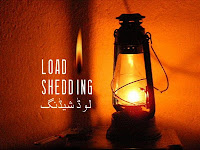Although, some of the political parties appear to be
sympathizers of Taliban and its offshoot Teherik-e-Taliban Pakistan (TTP) but
of lately Pakistan Therik-e-Insaf (PTI) has emerged as the Devil’s advocate.
This is not an allegation but an inference drawn from the latest statement of
Imran Khan, Chairman PTI given at Peshawar while talking to media.
As reported in media Imran Khan urged the government to
declare ceasefire if it was serious about holding peace talks with militants in
Pakistan. PTI chief also called on the government to allow militants to open up
office in Pakistan, similar to the Afghan Taliban office in Qatar to facilitate
the dialogue process.
Khan said that on one hand, there were talks of holding
negotiations but on the other hand war was still ongoing. He asked how it would
be possible to hold peace talks without the ceasefire. He also said that after
the fourth All Parties Conference (APC), it was decided to hold peace talks;
however no initiative has been taken as yet.
While talking about Peshawar church bombing which killed 81
people, Khan alleged that the tragedy had been politicized. He said 170 blasts
had taken place in Khyber Pakhtunkhwa in the past nine years under previous
governments, but PTI had not politicized those tragedies.
To put the record straight it is necessary to bring it to
the notice of PTI Chairman that during the election campaign while ANP, MQM and
PPP meetings were attacked by TTP for supporting the war on terror, the banned
outfit spared PML-N and PTI.
Now these two political parties are vehemently pleading
negotiation with the terrorist outfits. Strangely, the government is being
asked to stop operation against the perpetrators who take pride in claiming
responsibility of killing of innocent people, soldiers and officers of Pakistan
Army and other law enforcing agencies, sabotaging and destroying sensitive
installations.
One completely fails to understand logic behind Imran’s
demand of allowing the terrorists to open office in Pakistan. It seems
completely insane because TTP is a banned outfit; it had killed thousands of
innocent citizens, personnel of security forces and also caused enormous damage
to sensitive installation, including Mehran Naval Base in Karachi, where
aircrafts responsible for the surveillance of coastal line were destroyed.
The prerequisite for negotiations with any group at war with
the government is that it lays down weapons and stop killing innocent people
and attacking personnel of law enforcing agencies. It seems PML-N and PTI are begging the
terrorist to come to negotiation table rather than telling them categorically
that ‘talks can’t be held unless these banned outfits lay down arms’. These two
political parties are constantly ignoring messages coming from TTP, which claims
to be at war with Pakistan Army.
Keeping in view the recent happenings in Syria one is often
forced to draw the conclusion that the militants at war with Pakistan Army are
being funded, supplied the most lethal weapons and also given training to use
these are supported by ‘Enemies of Pakistan’. The sole purpose of these
perpetrators is to weaken Pakistan economically and plunge the country into
anarchy.
The perpetrators are killing people in the name of Islam but
are not attacking occupying forces in Afghanistan. In fact they have become
accomplice of CIA by creating a justification for prolonging stay of Nato
troops in Afghanistan.
By weakening Pakistan they are also facilitating India
in the creation of its hegemony in the region. The United States in the biggest
proponent of granting India status of ‘Regional Super Power’. This objective
can’t be achieved without causing serious dent to Pakistan.





